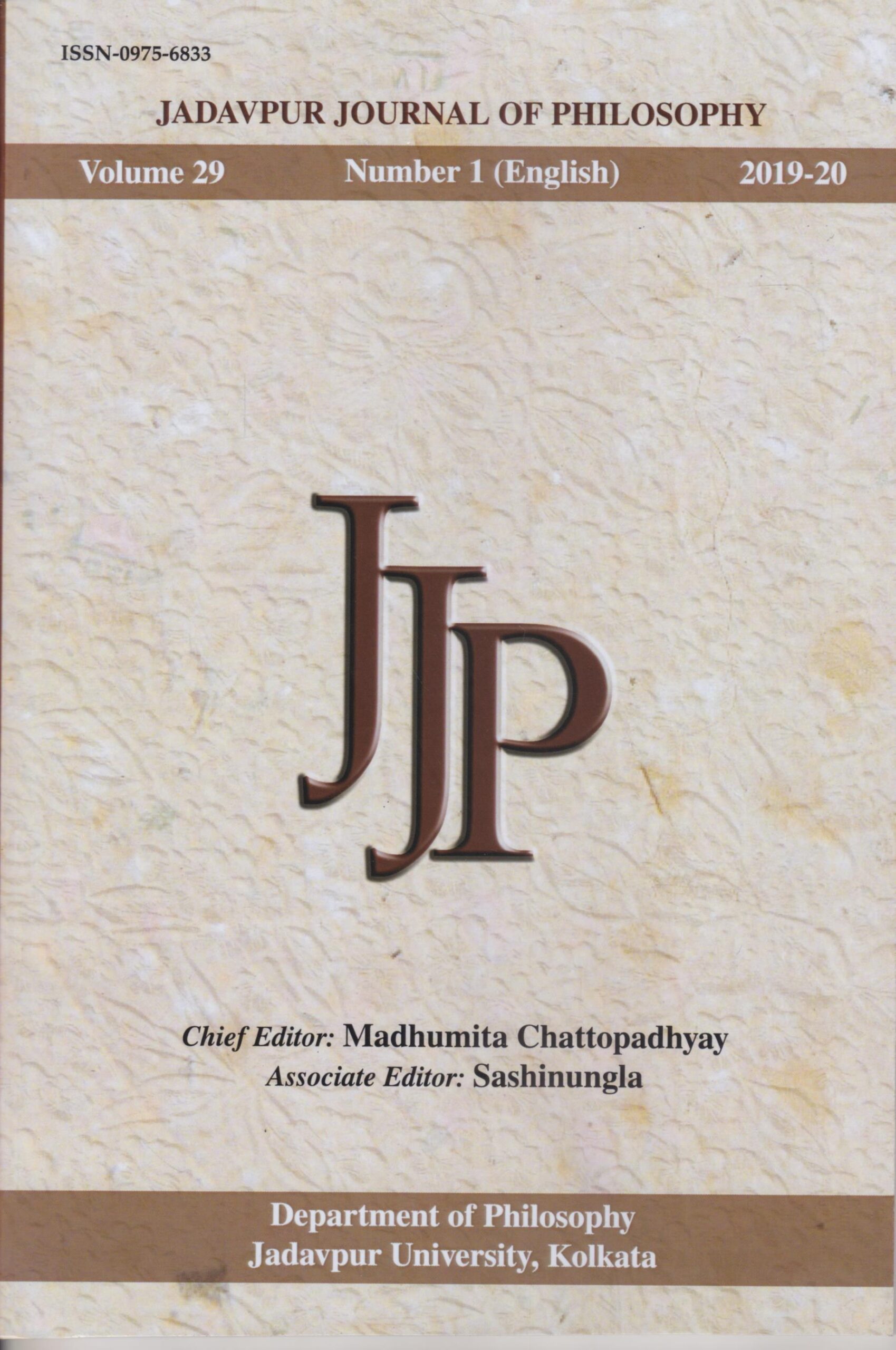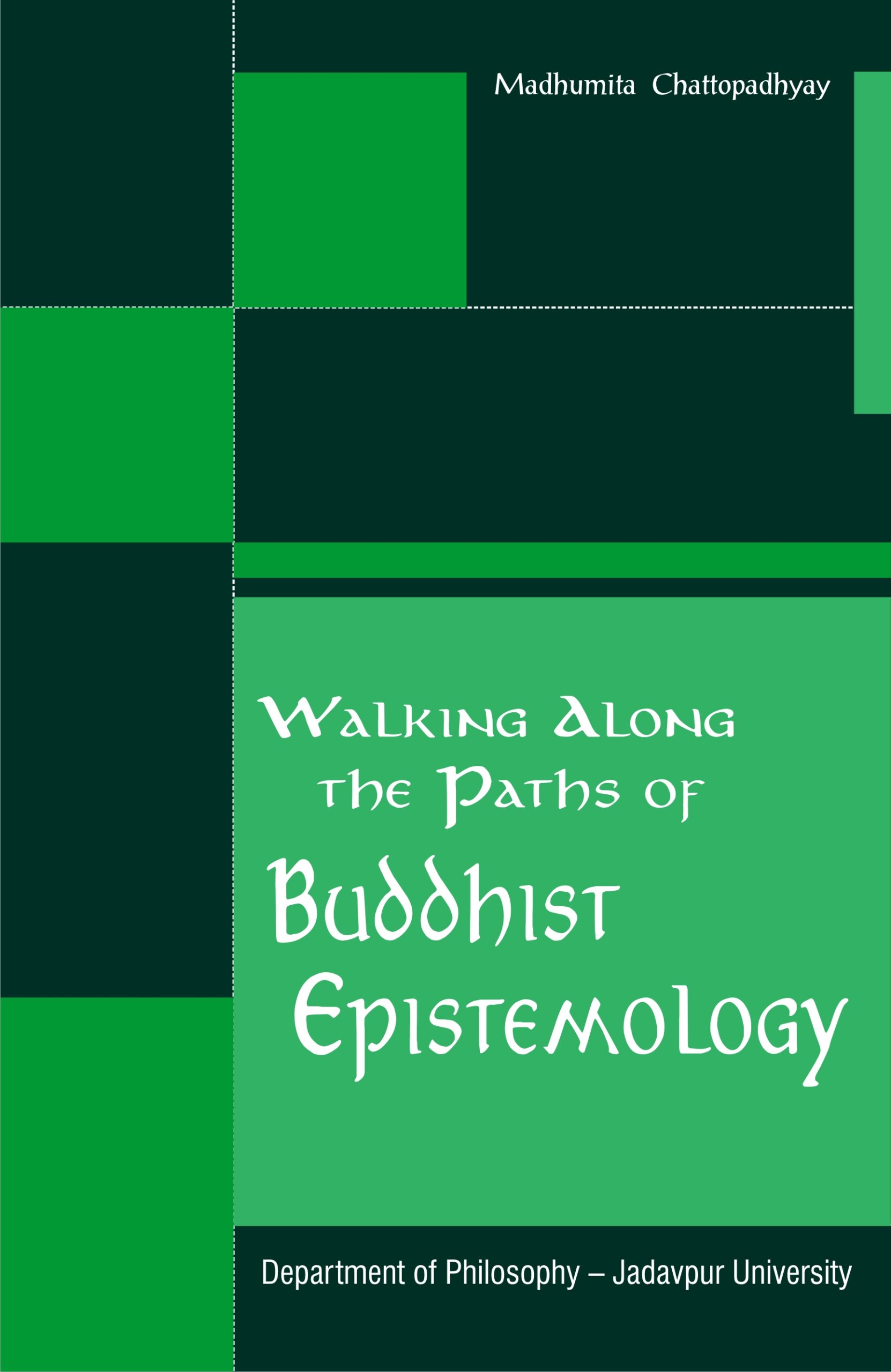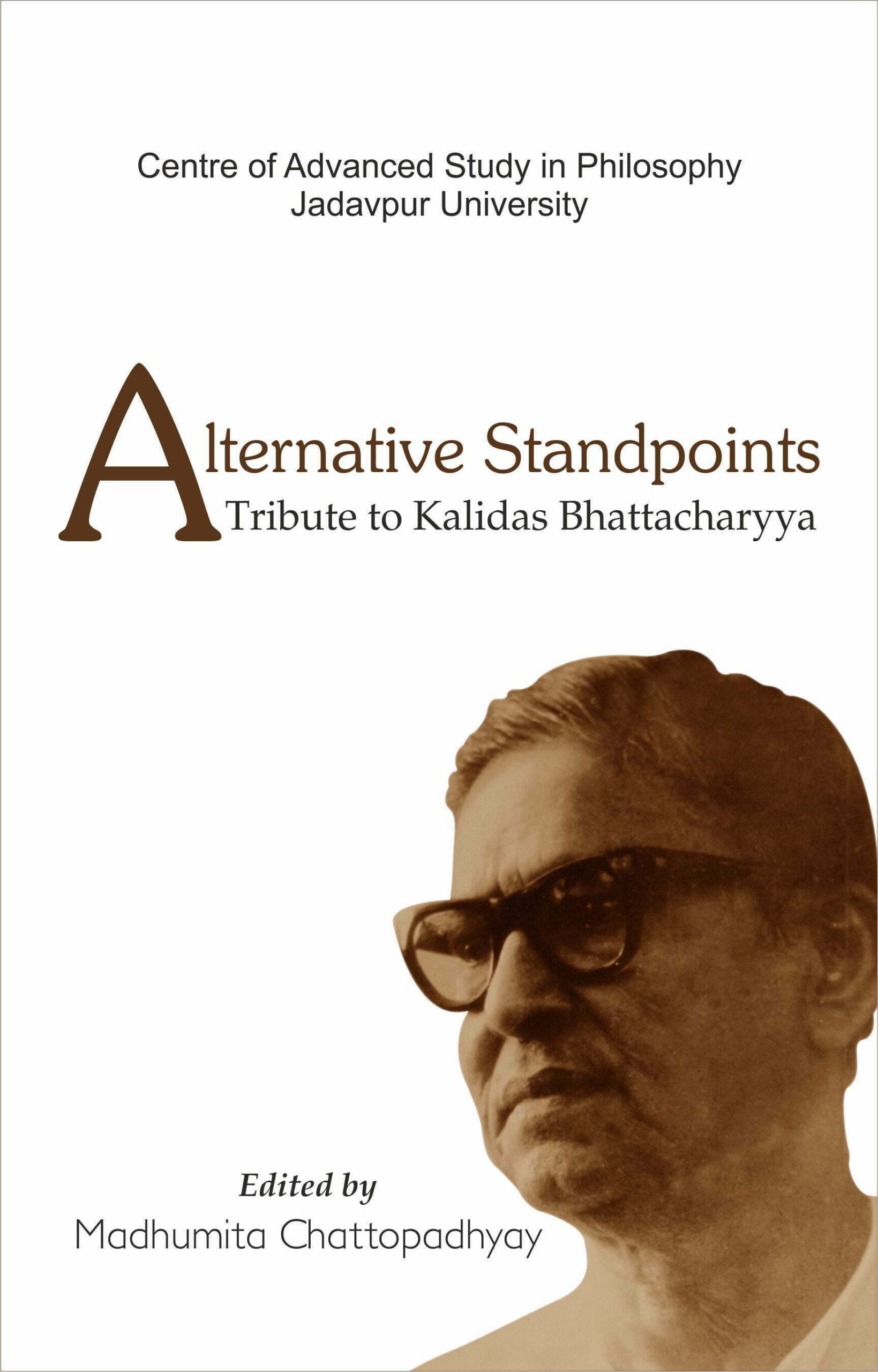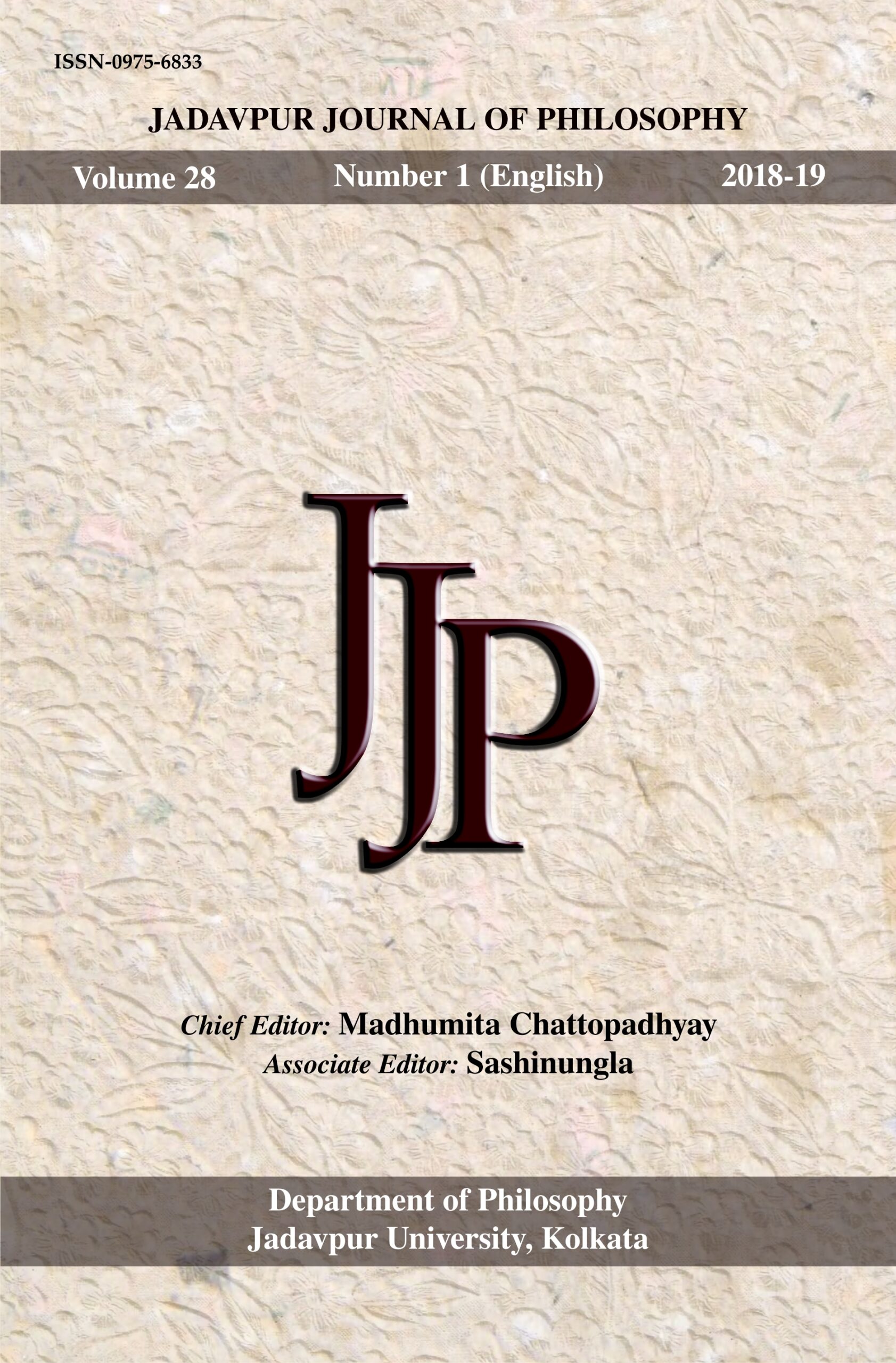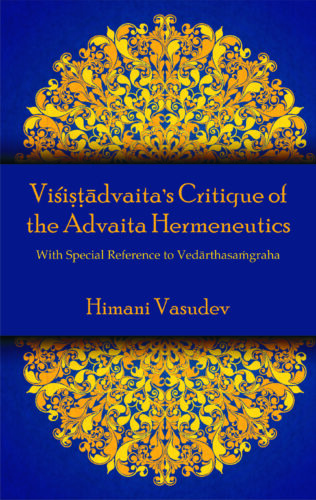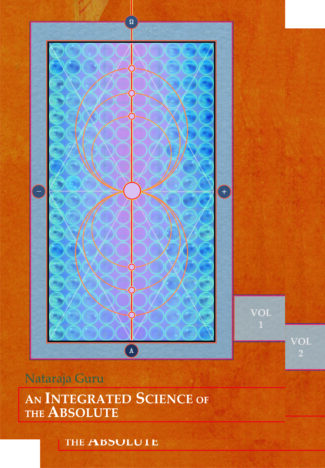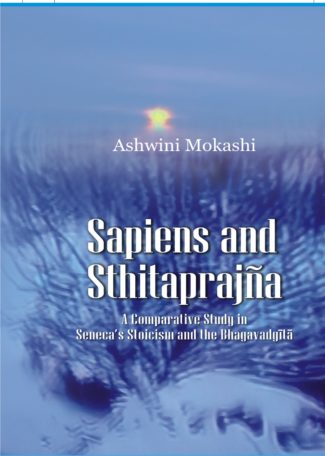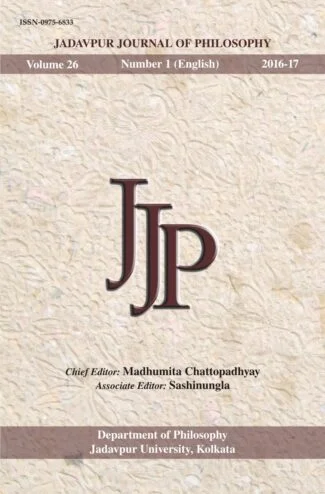

Jadavpur Journal of ...
Jadavpur Journal of Philosophy Vol. 26 (no. 1)
by: Madhumita Chattopadhyay , SashinunglaJadavpur Journal of Philosophy is a refereed, bi-issue journal, in English (No. 1) and Bengali (No. 2) published annually by the Department of Philosophy, Jadavpur University, Kolkata, India. The journal volume in Bengali is titled Darsan Biksa. The journal is devoted to the publication of original scholarly papers in any branch of philosophy. Its objective is to encourage contributions from scholars, dealing with specific philosophical problems connected with their respective fields of specialization.
₹300.00 Original price was: ₹300.00.₹270.00Current price is: ₹270.00.
ISBN: 9788124609231
Year Of Publication: 2017
Edition: 1st Edition
Pages : 131 p.
Language : English
Binding : Paperback
Publisher: Jadavpur University
Size: 24
Weight: 250
Jadavpur Journal of Philosophy is a refereed, bi-issue journal, in English (No. 1) and Bengali (No. 2) published annually by the Department of Philosophy, Jadavpur University, Kolkata, India. The journal volume in Bengali is titled Darsan Biksa. The journal is devoted to the publication of original scholarly papers in any branch of philosophy. Its objective is to encourage contributions from scholars, dealing with specific philosophical problems connected with their respective fields of specialization.
- Sale!An Introduction to Vedanta by: R. Subramony
₹550.00Original price was: ₹550.00.₹495.00Current price is: ₹495.00.Vedanta holds an unparalleled and unique place among the six systems of Indian philosophy. Though the Vedas are the fountainhead of Indian philosophical systems, Vedanta incorporates the philosophical thoughts resplendent in the Upanishads, the Brahmasutras, the Bhagavatgita, and in the commentaries on all these texts.
An Introduction to Vedanta introduces the Vedanta philosophy in brief and talks about its cardinal issues like self-control and the meaning of worship, maya and its gunas, upadhi, the theory of cycle, subtle bodies, the role of meditation, samadhi and its four major obstacles, Brahman realization and the state of a jivanmukta and his relation with Brahman and the world. - Sale!Theory of Karma: As Interpreted in Brahmasutra and Bhagavadgita by: Jagannivas P
₹1,000.00Original price was: ₹1,000.00.₹900.00Current price is: ₹900.00.Creation is a process, where the potential insentient matter (prakr̥ti) gets manifested into the gross form, to embody during the sr̥ṣṭi, each of the sentient entities called the ātmas with the suitable body either of deva, manuṣya, jaṅgama or of sthāvara. This glorious activity is orchestrated by the one and only Omnipresent, Omnipotent and Omniscient Reality called Brahman. But one question remains still an enigma, as to why a particular sentient entity gets a specified body and through whose direction that decision arrives? The ancient Vedāntic knowledge reinforced by the Brahmasūtra and the Bhagavadgītā establishes that it is, purely and solidly, the result (karma-phala) of earlier actions (karmas) of each one of the sentient entities. This is a strong and formidable solution to the unanswered questions like why does, one child being blessed to be born in either rich or healthy and sāttvic family and another child being consigned to be born in a family living in poor conditions or unhealthy tāmasic environment.
This book would engage the readers to think on those lines by supplying enough material on karma-adhikāratva, jīva-kartr̥tva and Divine intervention. - Sale!Visistadvaita’s Critique of the Advaita Hermenqutics by: Himani Vasudev
₹500.00Original price was: ₹500.00.₹450.00Current price is: ₹450.00.Vedānta is the very heart of Indian philosophy. The various schools of Vedānta have been explored under diverse categories including ontological and epistemological, but they are a storehouse of so much more. “Hermeneutics” in simple words can be the theory of interpretation and this book has studied the critique of the Advaita hermeneutics by Rāmānujācārya based on Vedic statements like tat tvam asi, tadaikāta bahu syāma, neha nānāsti kiñcana and many others in his book Vedārthasaṁgraha which mirrors a complete vision of the Upaniṣads. Rāmānujācārya has shown how the Śruti statements can be seen in a coherent manner resolving the conflicts of bheda and abheda. The nature of a word and its various śaktis, followed by how successful are words in describing the concepts of sat, cit and ānanda, are also discussed here.
This book is an initial effort in the hermeneutic studies of Indian texts, which have been kept limited to the scope of philosophy, theology or religion alone. Many more linguistic treasures can be found here. - Sale!An Intergrated Science of the Absolute (2 Vols. Set) by: Nataraja Guru
₹3,000.00Original price was: ₹3,000.00.₹2,700.00Current price is: ₹2,700.00.It is not just the magnum opus, but a truly monumental effort of a scientist-philosopher who has spent a whole lifetime to formulate a unitive science, wherein all disciplines of human questing could find a common ground a science where modern science and ancient spiritual wisdom could meet and merge like two opposite poles of a magnet. As a direct disciple of one of the great rishis of the modern age, Nataraja Guru discovers this common ground in Brahma-vidya, which he calls the Integrated Science of the Absolute, and which has, at its base, his Gurus Dars?ana Mala.
A string of hundred Sanskrit verses, composed by the mystic-poet, Narayana Guru (18541928), the Darsana Mala is the very epitome of all visions of truth inspired by his remarkable acquisitions of Upanisadic thought and, yet far more, by his own tapas (mystical discipline). Reproducing these highly significative verses in Roman script, along with English translations, word meanings, and extensive commentaries, Nataraja Guru not only spells out his mentors Visions of the Absolute in contemporary idiom, but also shows how these visions are fully validated by modern science.
Eclectic synthesis of varied scientific disciplines into a systematic whole is not all that Nataraja Guru accomplishes here. Rather, his book (now in third edition) is an attempt to reintroduce Brahma-vidya as the one Master Science that embraces every branch of science, every human interest. - Sale!Sapiens and Sthitaprajna by: Ashwini A. Mokashi
₹800.00Original price was: ₹800.00.₹720.00Current price is: ₹720.00.Sapiens and Sthitaprajna studies the concept of a wise person in the Stoic Seneca and in the Bhagavadgita. Although the Gita and Seneca’s writings were composed at least two centuries apart and a continent apart, they have much in common in recommending a well-lived life. This book describes how in both a wise person is endowed with both virtue and wisdom, is moral, makes right judgements and takes responsibility for actions. A wise and virtuous person always enjoys happiness, as happiness consists in knowing that one has done the right thing at the right time.
Both Seneca and the Gita demand intellectual rigour and wisdom for leading a virtuous and effective life. They provide guidelines for how to become and be wise. Both systems demand a sage to be emotionally sound and devoid of passions. This leads to mental peace and balance, and ultimately tranquillity and happiness. While surveying these similarities, this study also finds differences in their ways of application of these ideas. The metaphysics of the Gita obliges the sage to practise meditation, while the Stoics require a sage to be a rational person committed to analysing and intellectualizing any situation.
This comparative study will be of interest to students of both Ancient Western and Ancient Indian Philosophy. Practitioners of Stoicism and followers of the Gita should find the presence of closely-related ideas in a very different tradition of interest while perhaps finding somewhat different prescriptions a spur to action.


